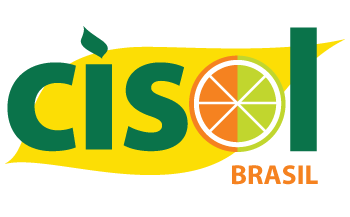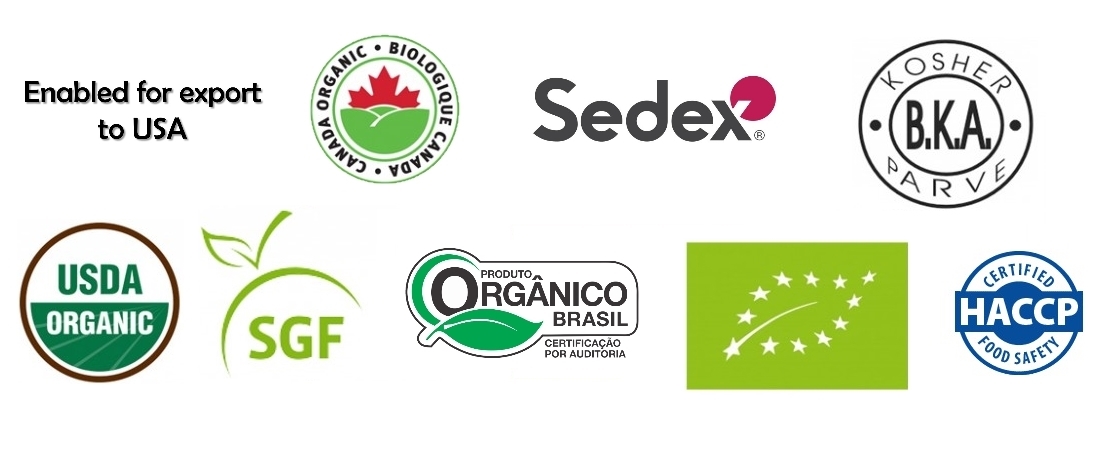



Cisol do Brasil was founded in 2014 in Artur Nogueira, located in the most famous region of citrus production in the state of São Paulo. The development of citrus production can be explained by some characteristics of the region: soil, relief, rainfall and climate[1].
Besides its strategic location, the concern about the quality of products and the safety of customers and consumers, enabled Cisol do Brasil to have a great development as a producer of concentrated juices, whole juices and oils of orange (Citrus sinensis), lime and lemon (Tahiti and Sicilian). This concern about having high quality products makes the company to use only high-quality raw materials, which are carefully processed, in order to obtain safe products (“products that cause no harm to the consumer when prepared or eaten according to its intended use.”) [2].
In this context, Cisol do Brasil understands and supports the implementation of certifications in the food industry and, because of that, already has Kosher Certificate, HACCP, USDA Organic and EU Organic.
The Kosher Certificate, world renowned, was obtained by the company in June 2014 and certifies that the products of Cisol do Brasil rigidly follow the specific rules of the Jewish Orthodox diet. This certificate is a synonym for maximum quality control [3].
In early 2015 the company also obtained the HACCP Certificate, in order to follow the rules established by the Codex Alimentarius. The Codex Alimentarius, that means Food Code, is a collection of standards related to Food safety. Such standards are internationally adopted and include codes of practice, guidelines and other important recommendations related to foods, sood production and food safety [2]. The HACCP (HACCP or as it is also known in Brazil) is, according to the Codex Alimentarius, a “system that identifies, evaluates and controls significant hazards to food safety”, based on seven principles [2]:
Because of the severity and detailing of this system, the HACCP Certificate is an important evidence of the quality and safety of the products of Cisol do Brasil.
Another distinguishing feature of the company is the production of organic food. Organic production, characterized by the absence of pesticides, chemical fertilizers or synthetic substances, is often associated with improvement in the quality of consumers life and also with the environment protection. A process is considered organic when it uses soil, water, air and other natural resources in a responsible way [5].
Brazil already has an outstanding position in the hanking of worlds producers of organic foods, and Cisol do Brasil is among the brazilian producer companies. Cisol do Brasil already has two organic certifications: USDA Organic (United States Department of Agriculture) and EU Organic (European Union), valuing two concepts: the relation of trust between producer and consumer and the quality control [6,7].
Besides all these certifications, Cisol do Brasil is also recognized by Sedex – Empowering Responsible Supply Chains, an organization dedicated to implement improvements in global supply chains, encouraging responsible and ethical business practices. This recognition shows the harmony between the principles of Sedex and the company, which understands the importance of the success of all components in order to obtain the sucess of all supply chain.
Due to all work, the certifications and the constant search for improvements, Cisol do Brasil also acquired their place as member of SGF group (Sure Global Fair), which monitors and encourages the standardization of the quality and the safety of fruit juices .
With so much care and the growing number of certifications, Cisol do Brasil aims to create a relation of trust, respect and transparency with its customers, offering them safe products with high quality.
References
[1] “Dados de Artur Nogueira”. Available: www.arturnogueira.sp.gov.br. Accessed: April 9th, 2015.
[2] “Codex Alimentarius: Segurança dos Alimentos – Textos Básicos”. Available:https://www.anvisa.gov.br/divulga/public/alimentos/codex_alimentarius.pdf. Accessed: April 9th, 2015.
[3] “Kosher”. Available:: https://www.bckosher.org/. Accessed: April 10th, 2015.
[4] ALVARENGA, A. L. B.; TOLEDO, J. C. “Análise de Perigos e Pontos Críticos de Controle (APPCC) como sistema para garantia da qualidade e segurança de alimentos: estudo de caso em uma pequena empresa processadora de bebidas.”, 2007. Available:: https://www.gepeq.dep.ufscar.br/arquivos/Artigo%20PGQ%20APPCC%20mod%20dez%202007.pdf. Accessed: April 10th, 2015.
[5] Ministério da Agricultura do Brasil. “Orgânicos”. Available:https://www.agricultura.gov.br/desenvolvimento-sustentavel/organicos. Accessed: April 11th, 2015.
[6] “USDA – Organic Agriculture”. Available:https://www.usda.gov/wps/portal/usda/usdahome?contentidonly=true&contentid=
organic-agriculture.html. Accessed: April 11th, 2015.
[7] “EU – Organic Certification”. Available:https://ec.europa.eu/agriculture/organic/organic-farming/what-is-organicfarming/
organic-certification/index_en.htm. Accessed: April 11th, 2015.